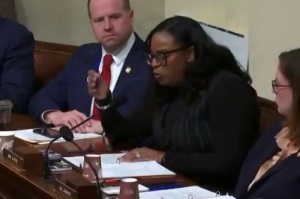A Retreat from Divestment
Perhaps sounding the final denouement of the anti-Israel divestment movement in the United States, the 7.9 million-member United Methodist Church resoundingly rejected anti-Israel divestment proposals at its recent governing General Conference.
Both Evangelicals within United Methodism and Jewish groups effectively persuaded the nearly 1,000 delegates to vote down numerous divestment plans.
Divestment advocates had targeted America's third largest religious denomination, with its $17 billion pensions fund, and with a church bureaucracy that is nearly reflexively anti-Israel. The United Methodist Board of Church and Society, which is the denomination's Washington, D.C. lobby office, had cleverly urged selective divestment that targeted only Caterpillar, Inc., whose bulldozers are chronically spotlighted by anti-Israel zealots as icons of the "occupation."
Meanwhile, five liberal regional "annual conferences" of the denomination had urged divestment, as did the far-left Methodist Federation for Social Action, the 100 old social justice caucus group that "Reader's Digest" infamously described as the "pink fringe" of Methodism during the early Cold War years.
Shortly before the United Methodist General Conference began on April 23 in Fort Worth, the Board of Church and Society withdrew its divestment proposal from consideration. Its officials had seen the negative reaction to it at an orientation for delegates early this year. And its officials, as an apparent face-saving measure, had met with Caterpillar executives, who benignly pledged to continue their already existing policy of not supporting illegal activities.
"Caterpillar's products are designed to improve quality of life," observed the company's bland statement for the Methodist lobbyists. "We do not condone the illegal or immoral use of any Caterpillar equipment. ... We expect our customers to use our products in environmentally responsible ways and consistent with human rights and the requirements of international humanitarian law."
Naturally, chief United Methodist lobbyist Jim Winkler tried to attach as much importance as possible to the pro forma statement. "Israel's occupation of Palestinian land has continued for more than 40 years," Winkler insisted. "Undeniable misery is experienced every day by Palestinian Christians and Muslims. Our church should not profit from it." In his news release, Winkler coyly referred to other anti-Israel divestment proposals and carefully asserted that they "deserve careful consideration by the delegates."
The legislation from the Methodist Federation for Social Action bemoaned that "40 years of military occupation and the continued seizing of more and more land for illegal settlements, constitutes both justice delayed and justice denied to more than two generations of Palestinians." It urged mandated divestment by all church agencies from companies that "support, and profit from, ongoing Israeli military occupation of Palestinian land and other longstanding violations of human rights."
Meanwhile, the Methodist Federation for Social Action revealingly lobbied against resolutions at the General Conference that would have condemned anti-Semitism, would have rejected comparisons between Israel and Apartheid, would have denounced Hamas, and would urged human rights in the Islamic world. Such statements would "condemn Islam," the group fretted, and would harm the church's relations with Muslims. The federation had no equal concerns about harming Methodist relations with Jews.
At a rally in Fort Worth for delegates and activists, the Methodist Federation for Social Action tried to drum up support for divestment. "If you haven't been accused of anti-Semitism yet, you haven't been doing the work of Justice," provocatively asserted Lilat Weingart of Jewish Voice for Peace to the Methodist audience, which gasped and laughed. Weingart complained that Jewish groups lobbying against divestment were "frozen in a reactionary stance." She also fretted about liberal church groups that were reluctant to denounce Israel. "People use such language because of fear of being accused of anti-Semitism," Weingart declared. "There is nothing fuzzy or hazy about the occupation. Soft and ambiguous language does not move people to action."
While many left-wing United Methodists were apparently indifferent to the church's relations with mainstream Jews, many Jewish groups were very concerned about United Methodism's stance on Israel, especially divestment. Groups such as the Jewish Council for Public Affairs, the Simon Wiesenthal Center, the Anti-Defamation League, the American Jewish Committee and B'nai B'rith carefully followed the divestment debate for over a year prior to the United Methodist General Conference, which concluded on May 2. Several Jewish groups sent staff to lobby delegates directly at the convention. Prior to the General Conference, local Jewish leaders around the country contacted United Methodist delegates with Jewish concerns about the divestment proposals.
Thanks in large part to this initiative by Jews across the nation, the divestment proposals all failed overwhelmingly in committee. In exasperation, the Methodist Federation for Social Action organized a last ditch effort to pull its defeated proposal off the consent calendar to permit debate about it on the convention floor. But delegates, fast running out of time, declined to take it up, and anti-Israel divestment died quietly.
Several years ago the Presbyterian Church (U.S.A.) retracted its endorsement of anti-Israel divestment, and other liberal Mainline denominations declined to endorse it. United Methodism's resounding rejection of divestment this year signals its likely permanent death as a movement among left-leaning church groups in the U.S. But the bureaucracies of United Methodism and the other mainline churches are still biased against Israel and certainly will look for new initiatives to launch against their favorite pariah state.
________________________________________________
Mark D. Tooley directs the United Methodist committee at the Institute on Religion and Democracy in Washington, D.C.



























